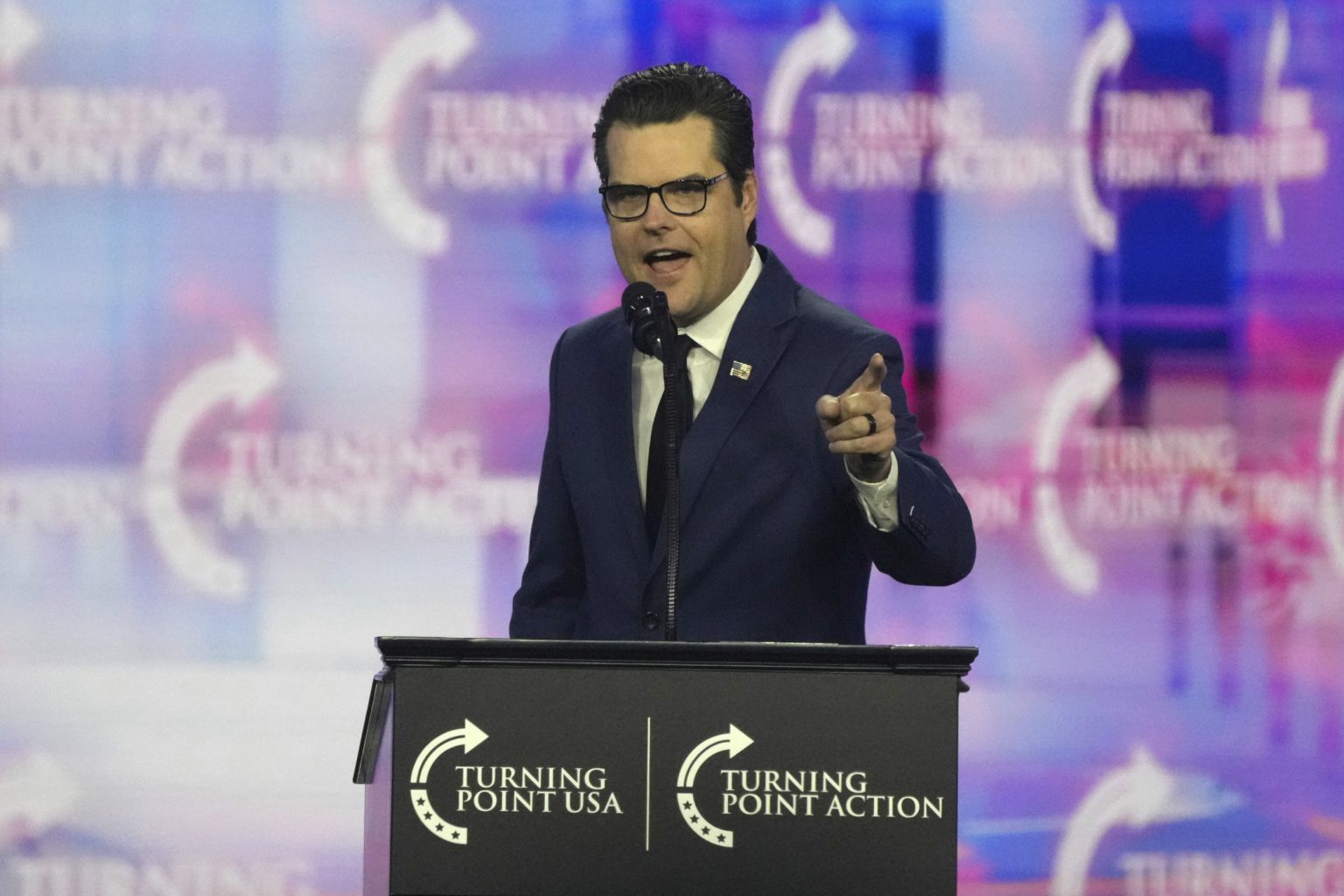The demand for transparency regarding sexual harassment settlements on Capitol Hill has ignited a fiery debate, with Republican lawmakers leading the charge to unveil the names of those implicated. Representative Thomas Massie of Kentucky sparked the controversy during a congressional hearing, highlighting the $17 million in taxpayer money disbursed to settle sexual misconduct claims within Congress. Massie’s impassioned plea to disclose these records, along with the identities of individuals involved, resonated with other Republican figures, including former Representative Matt Gaetz and Representative Marjorie Taylor Greene. Their collective call to “release the names” reflects a growing sentiment among some Republicans to expose alleged misconduct and hold those responsible accountable. This push for transparency comes amid broader concerns about the use of public funds for such settlements and a desire to shed light on potential abuses of power within the hallowed halls of Congress.
The impetus for this renewed focus on Capitol Hill’s sexual harassment settlements can be traced back to Matt Gaetz’s recent pronouncements. Following the House Ethics Committee’s decision to release its report on his conduct, Gaetz indicated his intention to return to Congress and file a motion to expose all “me too” settlements funded by taxpayers. Gaetz’s own history, including allegations of paying women for sex, engaging in sexual activity with a minor, drug use, and obstructing the Ethics Committee’s investigation, adds a layer of complexity to his call for transparency. While Gaetz insists on uncovering past misconduct, his own alleged actions have become a focal point of the very issue he seeks to address.
Gaetz’s suggestion to reveal the names of those involved in sexual harassment settlements has garnered support from several prominent figures, particularly within the pro-Trump wing of the Republican Party. Representative Greene echoed this sentiment, emphasizing that taxpayers should not bear the financial burden of these settlements. This stance aligns with a broader push for fiscal responsibility and accountability within government spending. The convergence of these issues, sexual misconduct and taxpayer funds, amplifies the public’s demand for transparency and underscores a growing distrust of government institutions.
The allegations against Gaetz, as detailed in the House Ethics Committee report, paint a disturbing picture of potential misconduct. The report alleges that he engaged in a pattern of paying women for sex, including a minor, over several years. Furthermore, accusations of drug use and efforts to obstruct the Ethics Committee’s investigation have cast a long shadow over his congressional career. Gaetz, who was once a rising star in the Republican Party, now faces serious questions about his fitness for public office. His call for transparency, while potentially valid, is viewed by some as an attempt to deflect attention from his own alleged wrongdoing.
The potential return of Gaetz to Congress looms large over this unfolding drama. While he has expressed his intention to retake his seat, his future remains uncertain. His involvement in a prime-time television show on One America News Network suggests a continued engagement in the political sphere, even outside the confines of Congress. His return would undoubtedly reignite the debate surrounding sexual harassment settlements and potentially force a reckoning on Capitol Hill.
The clamor to release the names of those involved in sexual harassment settlements reflects a deeper societal struggle with accountability and transparency. The use of taxpayer money to settle such claims raises fundamental questions about fairness and the responsible use of public funds. While the pursuit of justice for victims is paramount, the potential for reputational damage and the risk of false accusations must also be considered. The debate on Capitol Hill highlights the complex and often conflicting demands for transparency, accountability, and due process in addressing sensitive issues like sexual harassment. The path forward requires a careful balancing of these competing interests to ensure a just and equitable outcome for all involved. As this story continues to unfold, the nation will be watching closely to see how Congress grapples with these challenging questions and whether true transparency will prevail.

